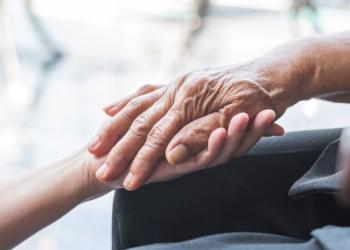
- Vol 33 No 11
- Volume 33
- Issue 11
Ms. L, Delirious Mania
To this day, I fiercely debate whether I would want to remember such an experience if it had happened to me. How tortured would I feel?
⇒ I didn’t understand. Ms. L was a petite woman who hadn’t had a manic episode in more than a decade. She had barely taken any antipsychotics for years. Multiple IM doses of olanzapine, lorazepam, diphenhydramine, and chlorpromazine had been given on top of valproate and clonazepam. How was I getting another page for violence and agitation?
I easily recall the details of her case and initial presentation several days ago. A complete mess, purple marker all over her arms, irritable and angry but not out of control, severe psychomotor agitation with picking at her fingers, legs or nails, and significant difficulty focusing on the interview. At one point during a pressured rant she ripped a book cover stating it was “the wrong cover.” What a stark contrast to the woman described by her psychiatrist and parents: kind, somewhat reserved, well-educated, high achieving, and watched her medication compliance like a hawk. How unfortunate, they told me, that just one slip was all it took.
I remind myself of her baseline function and shake my head. We’ve got a long way to go.
She’s sitting in the TV room, legs propped up on one chair, blanket half covering herself, hair disheveled, picking at her arms and hands. She sees me, “Oh look, it’s Dr. Lee, I mean Yee, whatever.” I introduce myself again and again as she states she keeps forgetting who I am. When I tell her she cannot see her parents, she becomes agitated, and I quickly instruct her to sit down. She does for 10 seconds and then starts pacing around the room, asks to see her parents again and before I can say anything she screams out profanity as loud as humanly possible. I felt like I was staring at one of those monsters in a movie, a Kraken or an alien that had just roared. She then sits down, her countenance sliding into sadness for the first time since I saw her. Her hands cover her head, she kicks the other chair repeatedly and begins to cry.
“Please make it stop . . . Make it go away, make it all go away . . .” she sobs.
“I . . . I can help with that, let’s . . . go take your Klonopin and Depakene. Come on . . . let’s go,” as I gently motion her to the nurses’ station.
This moment made everything so real to me. For years I thought of mania has a “high” that psychiatrists took away from patients for their own good before they spent their life savings. Now I knew this was not the case. She was fighting her mania so hard and struggling. The whole experience for her was torture. She was begging me to take her mania away, and I was failing.
Ms. L may have been out of control, hostile, and disorganized, but the essence of her behavior was a true sense of helplessness that was incredibly infectious. I was finding it hard to contain and reflect without wanting to cry myself. I rushed back to my desk to finish the treatment over objection paperwork. I had never made a critical treatment decision based on only case studies and series, but now was not the time to mince words. ECT was the best course of action and the legal system needed to take note.
Thankfully, it was all taken care of not a moment too soon. Treatment over objection was granted on my last day of the rotation, and Ms. L started receiving ECT the following Monday. I received a message the following week from Dr. K, my attending, telling me that our patient was unrecognizable. She was calm, collected, even kind at certain times after only 3 ECT treatments. It was one of the most robust and drastic changes Dr. K had ever seen. “So thank you for your hard work, Dr. Yee, we fixed her,” she added.
Weeks of research later, I came to realize that my patient may have had a rare subtype called delirious mania. The clinical presentation overlap with excited catatonia logically meant that the main treatment was actually benzodiazepines and ECT: antipsychotics could actually have made the episode worse. I was humbled at how well the literature had predicted her clinical course. It was also suggested that the overlap of delirium with mania meant that the mind would not be able to consolidate memory. Ms. L would likely never remember her manic episode.
To this day, I fiercely debate whether I would want to remember such an experience if it had happened to me. How tortured would I feel? How ashamed and embarrassed would I be regarding my destructiveness, my uncharacteristic sexual behavior, my verbal abuse toward those who were only trying to help, and the weight of the trauma of being repeatedly pinned to the bed by large men and being jammed with needles full of drugs? How painful would it be to remember? That I had a disease that overtook me? That the measures needed to take care of me involved shutting me in a chamber with nothing but a mattress and a gown, or restraining me to a bed without freedom to do as I please? That I required enough medication to put down something 3 times my size for 3 days and that my brain was still on fire? Such an experience must feel so alienating and Ms. L must have felt so lonely. I now realize that even discounting stigma, having this condition is terribly isolating.
However, if Ms. L does remember this experience, I hope she realizes that the entire team only saw a fellow human being in pain. That I believe that although she has bipolar disorder, her bipolar disorder doesn’t define her. I knew this even when all I saw was her mania.
Wherever you are, however you may be doing-be well Ms. L.
Disclosures:
Dr. Yee is a second-year psychiatry resident at the Icahn School of Medicine at Mount Sinai in New York, with a primary interest in mood and anxiety disorders.
Articles in this issue
about 9 years ago
Introduction: CAMs and the Future of Mental Health Careabout 9 years ago
The Use of Meditation in Children With Mental Health Issuesabout 9 years ago
DSM-5 and Paraphilias: What Psychiatrists Need to Knowabout 9 years ago
The Stranger in Our Midstabout 9 years ago
The Patient’s Son Is Normalabout 9 years ago
New Evidence Suggests Media Violence Effects May Be Minimalabout 9 years ago
Psychiatric Ethics and Cultural SensitivityNewsletter
Receive trusted psychiatric news, expert analysis, and clinical insights — subscribe today to support your practice and your patients.







